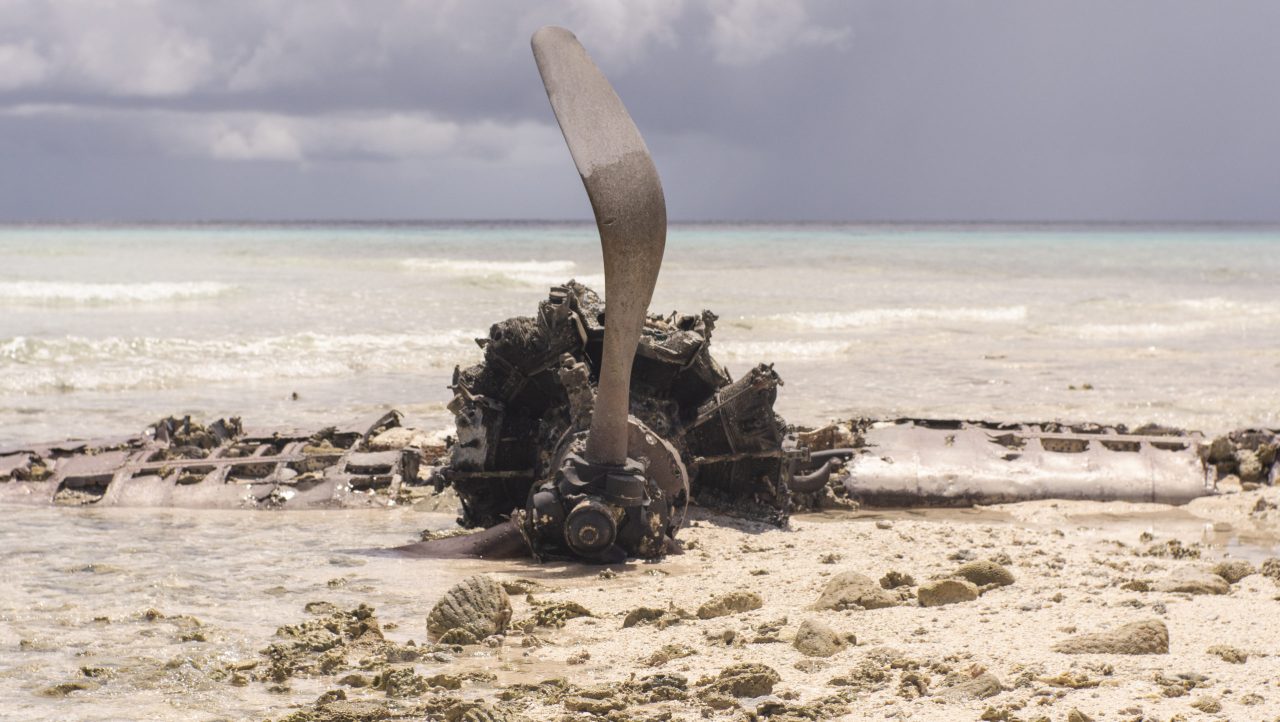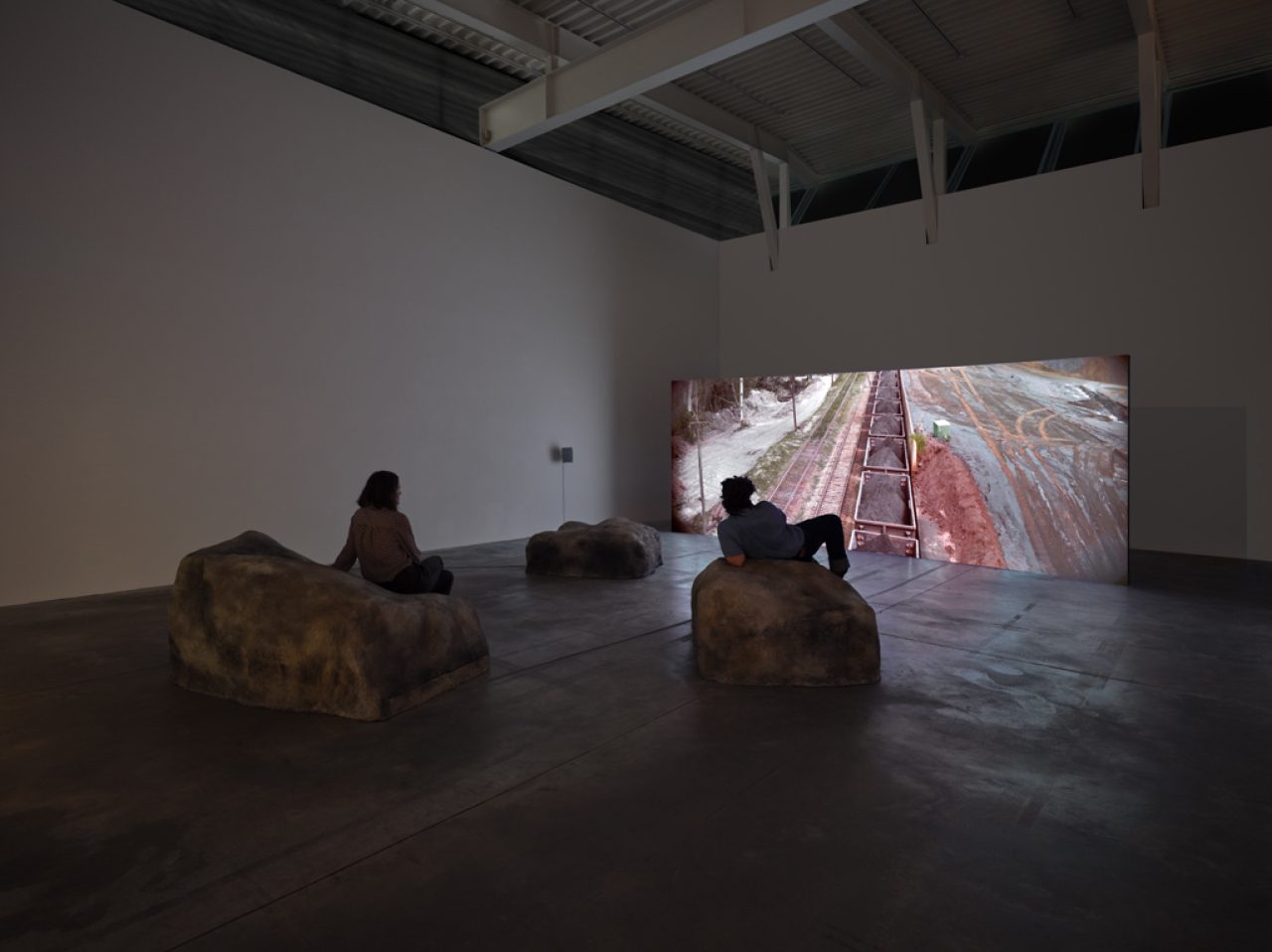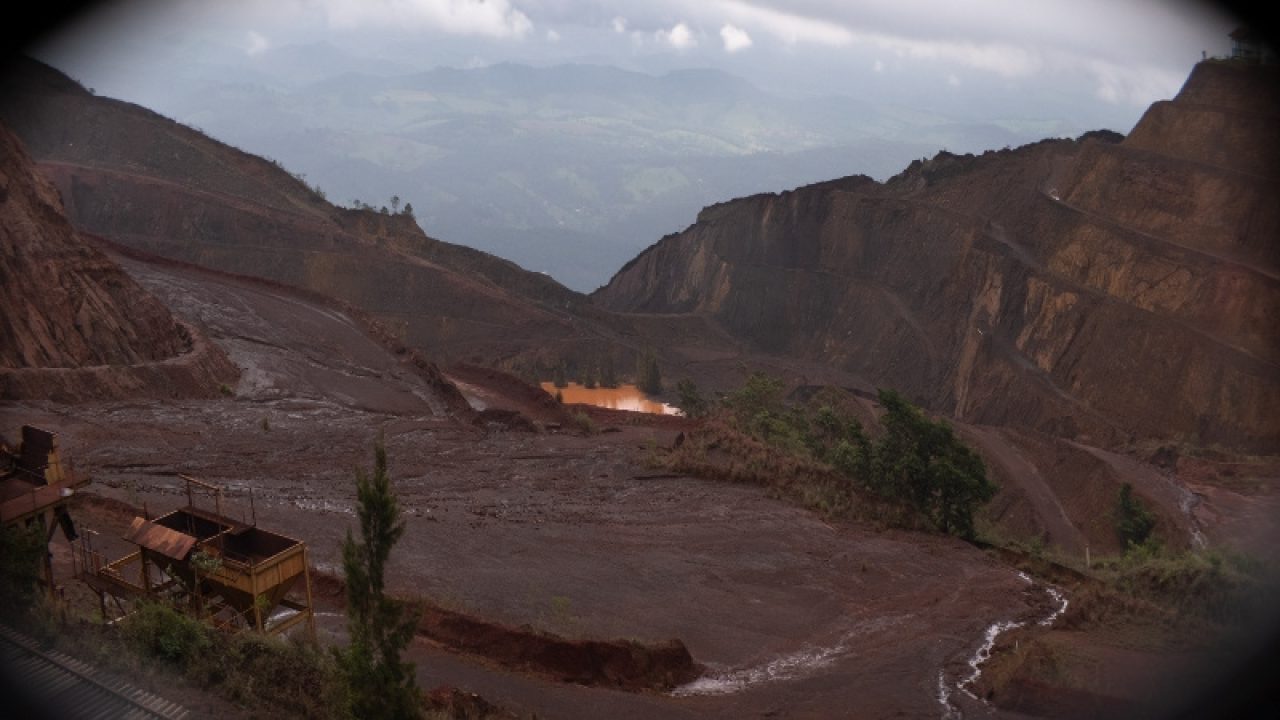Saturday 3 Dec 2022 from 1 to 5 pm
Liu Institute for Global Issues, 6476 NW Marine Drive, UBC
Symposium and Gathering: Corpus Infinitum
-
Vanessa Andreotti
Vanessa Andreotti is the Interim Director of the Peter Wall Institute of Advanced Studies, a professor in the Department of Educational Studies, a Canada Research Chair in Race, Inequalities and Global Change, a research fellow at the University of Oulu, where she was chair of global education from 2010 to 2013, and a research fellow at the Centre for Global Citizenship Education at the University of Alberta. Andreotti’s research examines historical and systemic patterns of reproduction of inequalities and how these limit or enable possibilities for collective existence and global change. Her publications in this field include analyses of political economies of knowledge production, discussions of the ethics of international development, and critical comparisons of ideals of globalism and internationalization in education and in global activism, with an emphasis on representations of and relationships with marginalized communities.
Read More
-
Phanuel Antwi
Phanuel Antwi is Associate Professor in the Department of English Language and Literatures at UBC. In 2022 he was named Canada Research Chair in Black Arts and Epistemologies. He writes, researches and teaches critical black studies; settler colonial studies; black Atlantic and diaspora studies; Canadian literature and culture since 1830; critical race, gender and sexuality studies; and material cultures. He has published articles in Interventions, Affinities, and Studies in Canadian Literature, and is completing a book-length project titled “Currencies of Blackness: Faithfulness, Cheerfulness and Politeness in Settler Writing.”
Read More
-
Denise Ferreira da Silva
Denise Ferreira da Silva is an artist and Professor at UBC’s Social Justice Institute-GRSJ and Adjunct Professor at Monash University’s School of Art, Design and Architecture. She is the author of Toward a Global Idea of Race (University of Minnesota Press, 2007), A Dívida Impagavel (Oficina da Imaginaçāo Política and Living Commons, 2019), Unpayable Debt (Sternberg/MIT Press, 2022) and co-editor (with Paula Chakravartty) of Race, Empire, and the Crisis of the Subprime (Johns Hopkins University Press, 2013). Her artistic works include the films with Arjuna Neuman and the relational art practices Poethical Readings and Sensing Salon in collaboration with Valentina Desideri. She has exhibited and lectured at the Pompidou Center (Paris), Whitechapel Gallery (London), MASP (Sao Paulo), Guggenheim (New York) and MoMA (New York). She has written for publications from Liverpool Biennale, 2017; Sao Paulo Biennale, 2016, Venice Biennale, 2017, and Documenta 14 and published in journals such as Canadian Art, Frieze, Pass, Texte Zur Kunst and e-flux. She has held visiting professorships at major universities in Australia, Brazil, Britain, Denmark, Germany and the United States and is a member of the collective EhChO.org and an editor of Third Text.
Read More
-
Kayah George
Kayah George “Halth-Leah” (she/they) proudly carries the teachings of her Tulalip and Tsleil-Waututh Nations and has been on the frontlines fighting against the Trans Mountain pipeline for more than half of her life. She is a young Indigenous environmental leader, activist and filmmaker. George has spoken globally about climate justice and shared the teachings of her nations to honour and care for the earth. She has worked with environmental organizations, including Indigenous Climate Action (an Indigenous-led organization guided by a diverse group of Indigenous knowledge keepers, water protectors and land defenders), to build capacity for an Indigenous-led divestment movement. George is currently working on a short film that shares the intrinsic connection the Tsleil-Waututh people have to the “Burrard” Inlet.
Read More
-
Mark Harris
Mark Harris is Associate Professor in the Institute of Gender, Race, Sexuality and Social Justice, UBC. His research focuses on Indigenous rights in relation to cultural heritage, land claims, the stolen generations, intellectual property and criminal justice issues. He has worked as a lawyer giving advice on native title claims for the Wurundjeri, Gunai Kurnai, Manatunga and Gubbi Gubbi Indigenous communities in Australia and continues to provide advice to Indigenous groups on a range of issues. As a representative of LatCrit, an NGO comprising legal academics working in the field of critical race theory and racism, he has participated in the United Nations Permanent Forum on Indigenous Issues. His recent research projects have included reviews of the operation of Koori (Aboriginal) courts in Victoria (a program that is not dissimilar to Toronto’s First Nations Gladue Courts), and the experience of Koori youth in the justice system. He also works in the field of postcolonial legal theory, which informed his manuscript titled Human Rights, the Rule of Law and Exploitation in the Postcolony: Blood Minerals that will be published by Routledge later this year. He is currently an editor, along with Denise Ferreira da Silva (Institute of GRSSJ, UBC) and Brenna Bhandar (SOAS, London) of the Routledge series, Law and the Postcolonial: Ethics, Politics and Economy.
Read More
-
Vanessa Kwan
Vanessa Kwan is an artist, producer and curator with a focus on collaborative, site-specific and cross-disciplinary practices. They are currently Director and Curator, Gallery and Exhibitions at Emily Carr University on unceded Musqueam, Squamish and Tsleil-Waututh territories (Vancouver, Canada). They have worked in artistic leadership roles since 2003, contributing to organizations such as grunt gallery, the Vancouver Art Gallery, Other Sights for Artists’ Projects, Access Gallery, Powell Street Festival and Out On Screen. They regularly write, speak and publish on art and culture, and since 2017 have been producing residency projects across the Pacific Rim (Vancouver, Seoul, Melbourne and Sydney) exploring artist-led creative exchange. In addition, they have produced significant public art works including Geyser for Hillcrest Park (with Erica Stocking), Speaker A, a permanent sound installation co-created with Theatre Replacement (Maiko Yamamoto and James Long) and Curtains, an upcoming collaborative performance work.
Read More
-
Johnny Mack
Johnny Mack is from the Toquaht Nation (Nuu-chah-nulth) and is Assistant Professor at UBC Allard School of Law. From 2014-2018 he was jointly appointed across First Nations and Indigenous Studies and Allard Law at UBC. His research investigates the legal relationship between Indigenous and settler peoples in contemporary settler states, particularly Canada, as well as Indigenous constitutionalism, subjectivity, critical theory and legal pluralism.
Read More
-
Rita Wong
Rita Wong lives and works on unceded Coast Salish territories, also known as Vancouver, where she attends to questions of water justice, decolonization, and ecology. Co-editor of the anthology Downstream: Reimagining Water with Dorothy Christian, Wong has written several books of poetry: current, climate (2021), beholden (2018, with Fred Wah), undercurrent (2008, with Larissa Lai), forage (shortlisted for the 2008 Asian American Literary Award for Poetry and winner of Canada Reads Poetry, 2011) and monkeypuzzle (1998). She has received the Dorothy Livesay Poetry Prize and the Asian Canadian Writers’ Workshop Emerging Writer Award.
Read More
Join us for an important gathering to address the provocations of Elemental Cinema: Denise Ferreira da Silva and Arjuna Neuman bringing together artists, curators, scholars, and land and water defenders for a fulsome immersion into the most pressing concerns put forward by the exhibition and our shared global experience of radical precarity. This afternoon event will be moderated by Elemental Cinema artist Denise Ferreira da Silva and comprises two panels. Participants include Vanessa Andreotti, Phanuel Antwi, Kayah George, Mark Harris, Vanessa Kwan, Johnny Mack and Rita Wong. We will spend the afternoon together in poetry and conversation.
This program constitutes the second iteration of a two-part series, a discursive call and response attending to local resonances of global urgencies in specific contexts: Oaxaca, Mexico and Vancouver, Canada. The first symposium iteration, Nubes Ancestrales Reclamos Ancestrales (Ancestral Clouds Ancestral Claims, 5 September 2022), was convened by Denise Ferreira da Silva and Arjuna Neuman at the Ethnobotanical Garden of Oaxaca, Mexico. Foregrounding the ancestral claims of Indigenous people of Oaxaca and attending to the harms of industrial extraction and contamination, this symposium considered the limits of the principles that guide legal and popular reception of indigenous political and ethical demands (universality, identity, equality), especially as they challenge the interests of the state and global capital. Program events were broadcast live by the Museum of Contemporary Art of Barcelona.
The Belkin will stay open until 7 pm.
Program
1-1:15 pm
Introductory Remarks
Denise Ferreira da Silva
1:15-2:45 pm
Panel 1: existing otherwise; that is, besides/with/in/against
Kayah George, Vanessa Kwan, Phanuel Antwi
2:45-3:15 pm
Break
3:15-4:45 pm
Panel 2: material aesthetics : a critical engagement
Rita Wong, Vanessa Andreotti, Mark Harris
4:45-5 pm
Postscript
Johnny Mack
Image (above): Denise Ferreira da Silva and Arjuna Neuman, Soot Breath // Corpus Infinitum (still), 2020.
Conceived and Developed by Shelly Rosenblum and Denise Ferreira da Silva
-
Vanessa Andreotti
Vanessa Andreotti is the Interim Director of the Peter Wall Institute of Advanced Studies, a professor in the Department of Educational Studies, a Canada Research Chair in Race, Inequalities and Global Change, a research fellow at the University of Oulu, where she was chair of global education from 2010 to 2013, and a research fellow at the Centre for Global Citizenship Education at the University of Alberta. Andreotti’s research examines historical and systemic patterns of reproduction of inequalities and how these limit or enable possibilities for collective existence and global change. Her publications in this field include analyses of political economies of knowledge production, discussions of the ethics of international development, and critical comparisons of ideals of globalism and internationalization in education and in global activism, with an emphasis on representations of and relationships with marginalized communities.
Read More
-
Phanuel Antwi
Phanuel Antwi is Associate Professor in the Department of English Language and Literatures at UBC. In 2022 he was named Canada Research Chair in Black Arts and Epistemologies. He writes, researches and teaches critical black studies; settler colonial studies; black Atlantic and diaspora studies; Canadian literature and culture since 1830; critical race, gender and sexuality studies; and material cultures. He has published articles in Interventions, Affinities, and Studies in Canadian Literature, and is completing a book-length project titled “Currencies of Blackness: Faithfulness, Cheerfulness and Politeness in Settler Writing.”
Read More
-
Denise Ferreira da Silva
Denise Ferreira da Silva is an artist and Professor at UBC’s Social Justice Institute-GRSJ and Adjunct Professor at Monash University’s School of Art, Design and Architecture. She is the author of Toward a Global Idea of Race (University of Minnesota Press, 2007), A Dívida Impagavel (Oficina da Imaginaçāo Política and Living Commons, 2019), Unpayable Debt (Sternberg/MIT Press, 2022) and co-editor (with Paula Chakravartty) of Race, Empire, and the Crisis of the Subprime (Johns Hopkins University Press, 2013). Her artistic works include the films with Arjuna Neuman and the relational art practices Poethical Readings and Sensing Salon in collaboration with Valentina Desideri. She has exhibited and lectured at the Pompidou Center (Paris), Whitechapel Gallery (London), MASP (Sao Paulo), Guggenheim (New York) and MoMA (New York). She has written for publications from Liverpool Biennale, 2017; Sao Paulo Biennale, 2016, Venice Biennale, 2017, and Documenta 14 and published in journals such as Canadian Art, Frieze, Pass, Texte Zur Kunst and e-flux. She has held visiting professorships at major universities in Australia, Brazil, Britain, Denmark, Germany and the United States and is a member of the collective EhChO.org and an editor of Third Text.
Read More
-
Kayah George
Kayah George “Halth-Leah” (she/they) proudly carries the teachings of her Tulalip and Tsleil-Waututh Nations and has been on the frontlines fighting against the Trans Mountain pipeline for more than half of her life. She is a young Indigenous environmental leader, activist and filmmaker. George has spoken globally about climate justice and shared the teachings of her nations to honour and care for the earth. She has worked with environmental organizations, including Indigenous Climate Action (an Indigenous-led organization guided by a diverse group of Indigenous knowledge keepers, water protectors and land defenders), to build capacity for an Indigenous-led divestment movement. George is currently working on a short film that shares the intrinsic connection the Tsleil-Waututh people have to the “Burrard” Inlet.
Read More
-
Mark Harris
Mark Harris is Associate Professor in the Institute of Gender, Race, Sexuality and Social Justice, UBC. His research focuses on Indigenous rights in relation to cultural heritage, land claims, the stolen generations, intellectual property and criminal justice issues. He has worked as a lawyer giving advice on native title claims for the Wurundjeri, Gunai Kurnai, Manatunga and Gubbi Gubbi Indigenous communities in Australia and continues to provide advice to Indigenous groups on a range of issues. As a representative of LatCrit, an NGO comprising legal academics working in the field of critical race theory and racism, he has participated in the United Nations Permanent Forum on Indigenous Issues. His recent research projects have included reviews of the operation of Koori (Aboriginal) courts in Victoria (a program that is not dissimilar to Toronto’s First Nations Gladue Courts), and the experience of Koori youth in the justice system. He also works in the field of postcolonial legal theory, which informed his manuscript titled Human Rights, the Rule of Law and Exploitation in the Postcolony: Blood Minerals that will be published by Routledge later this year. He is currently an editor, along with Denise Ferreira da Silva (Institute of GRSSJ, UBC) and Brenna Bhandar (SOAS, London) of the Routledge series, Law and the Postcolonial: Ethics, Politics and Economy.
Read More
-
Vanessa Kwan
Vanessa Kwan is an artist, producer and curator with a focus on collaborative, site-specific and cross-disciplinary practices. They are currently Director and Curator, Gallery and Exhibitions at Emily Carr University on unceded Musqueam, Squamish and Tsleil-Waututh territories (Vancouver, Canada). They have worked in artistic leadership roles since 2003, contributing to organizations such as grunt gallery, the Vancouver Art Gallery, Other Sights for Artists’ Projects, Access Gallery, Powell Street Festival and Out On Screen. They regularly write, speak and publish on art and culture, and since 2017 have been producing residency projects across the Pacific Rim (Vancouver, Seoul, Melbourne and Sydney) exploring artist-led creative exchange. In addition, they have produced significant public art works including Geyser for Hillcrest Park (with Erica Stocking), Speaker A, a permanent sound installation co-created with Theatre Replacement (Maiko Yamamoto and James Long) and Curtains, an upcoming collaborative performance work.
Read More
-
Johnny Mack
Johnny Mack is from the Toquaht Nation (Nuu-chah-nulth) and is Assistant Professor at UBC Allard School of Law. From 2014-2018 he was jointly appointed across First Nations and Indigenous Studies and Allard Law at UBC. His research investigates the legal relationship between Indigenous and settler peoples in contemporary settler states, particularly Canada, as well as Indigenous constitutionalism, subjectivity, critical theory and legal pluralism.
Read More
-
Rita Wong
Rita Wong lives and works on unceded Coast Salish territories, also known as Vancouver, where she attends to questions of water justice, decolonization, and ecology. Co-editor of the anthology Downstream: Reimagining Water with Dorothy Christian, Wong has written several books of poetry: current, climate (2021), beholden (2018, with Fred Wah), undercurrent (2008, with Larissa Lai), forage (shortlisted for the 2008 Asian American Literary Award for Poetry and winner of Canada Reads Poetry, 2011) and monkeypuzzle (1998). She has received the Dorothy Livesay Poetry Prize and the Asian Canadian Writers’ Workshop Emerging Writer Award.
Read More
Related
-
Exhibition
6 Sep – 11 Dec 2022
Elemental Cinema: Denise Ferreira da Silva and Arjuna Neuman

Elemental Cinema brings together collaborative film works by Denise Ferreira da Silva and Arjuna Neuman. In this series of films, the four elements – water, earth, fire, air – inform the artists' meditations on an entangled existence and considerations of time and value that reimagine knowledge and existence "otherwise." The exhibition includes installations of their films Serpent Rain (2016), 4 Waters – Deep Implicancy (2019) and Soot Breath // Corpus Infinitum (2020), as well as archives related to the films.
[more] -
Event
Wednesday 26 Oct 2022 at 1 pm
CANCELLED - Wednesday 23 Nov 2022 at 1 pm
Conversations: Elemental Aesthetics

Join leading UBC scholars, artists, curators and critics in a series of midday conversations. We invite four prominent, disciplinarily distinct voices into the gallery to discuss productive intersections of their own work and the current exhibition, followed by a discussion that includes the audience. In this series, guests address Elemental Cinema, which brings together the collaborative film works of Denise Ferreira da Silva and Arjuna Neuman.
[more] -
Event
Wednesday 7 Dec 2022 at 2 pm
Concert at the Belkin: Elemental Cinema

Join us for a concert by the UBC Contemporary Players directed by Paolo Bortolussi in a program that celebrates the Belkin’s current exhibition, Elemental Cinema: Denise Ferreira da Silva and Arjuna Neuman.
[more] -
News
15 Aug 2022
Reading Room: Elemental Cinema

Investigate deeper into themes and issues related to Elemental Cinema with texts by Denise Ferreira da Silva, artist interviews, reviews and supplemental material of some of the works in the exhibition, as well as writings on the elements and archives.
[more] -
Event
Thursday 9 Sep 2021, 6 pm
Drift: Opening with Denise Ferreira da Silva and Jol Thoms

Please join us for the opening of Drift: Art and Dark Matter with a performance-conversation by artists Denise Ferreira da Silva and Jol Thoms. Ferreira da Silva and Thoms will touch on intersections between Soot Breath / Corpus Infinitum (2020) and n-Land (2021), both of which will play throughout the evening on the Belkin Screen.
[more]